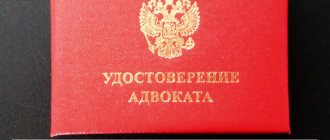Criminal liability for photography
“Pisces,” or, to put it more simply, parties organized by young people who barely know each other, are accompanied by copious consumption of alcohol, drugs, and even casual sexual relations. At one such event, several teenagers raped a schoolgirl, and their friends posted the video on the Internet. The joke turned into a criminal case. Apparently, the friends had no idea that there was liability for violating privacy, and the distributors were also participants in the crime.
“Illegal collection or dissemination of information about the private life of a person, including those constituting his personal or family secret, without his consent, or dissemination of this data on the Internet or the media, is a violation of Article 137 of the Criminal Code. For this, punishment ranges from a fine to real imprisonment for a period of two years,” says criminal lawyer Viktor Ikryannikov.
At such parties you can find young people in the most unsightly form: some drink alcohol to excess, others can show striptease, and others indulge in carnal pleasures. Almost everyone has a mobile phone with a video camera in their pocket that can record the most piquant moments of what is happening. And Internet access allows you to post incriminating evidence for everyone to see within a couple of minutes. Fans of such broadcasts rarely imagine that they can be held criminally liable for what they have done, and a seemingly innocent joke is a violation of the law, for which one can be punished.
“Mobile reporters can be prosecuted under Article 242 of the Criminal Code. Illegal production and circulation of pornographic materials or objects associated with their placement in the media, including on the Internet, carries a penalty of up to six years in prison. A video lasting a few seconds can turn into years spent in captivity. After all, the investigation and the court may see him as a violation of several articles of legislation at once,” says criminal lawyer Viktor Ikryannikov.
Something similar happened to the young people celebrating their initiation into freshmen. A school friend of one of the students was invited to a party at a nightclub. The girl drank quite a bit, which her friends did not fail to take advantage of. They dragged her into the toilet, where they had sexual intercourse. The incident was accompanied by obscene comments and broadcast on the Internet. The story has caused a lot of noise; the comrades who were expelled from the educational institution are now accused of rape and distribution of pornography. If I hadn't had a camera in my hands, everything could have been much less of a problem.
“Article 137 of the Criminal Code for the illegal distribution in the media of materials that can discredit a person under sixteen years of age implies real imprisonment. Any racy photograph or video involving a minor can result in five years in prison. Therefore, you should think carefully when posting something on social networks,” advises criminal lawyer Viktor Ikryannikov.
Search in social networks
An offender who posted someone else's photos anonymously or from someone else's account cannot escape justice. Kravchenko explained that forensic science is now developed and during investigations they cooperate with telecom operators that provide access to the network.
“The social network knows the IP address, and often the phone number of the user who made the publication is enough. Knowing the IP address, we can find the telecom operator who provided this address. And then the time of publication is compared with [information about] which subscriber used this IP address,” said Kravchenko.
If the images were published on Russian social networks, then the matter becomes much simpler. Lukhin explained that you can make a request and find out who registered under this phone number. And then you can request data from your mobile operator.
Publishing intimate images of others is always a traumatic situation for a person, most often for a girl. In general, a person should know who they are sharing naked pictures with and be sure that person will not forward them to third parties.
Characteristic
Disclosure of personal data 137 of the Criminal Code of the Russian Federation is presented by the legislator in the form of collecting or disseminating information that affects a person’s private life. The collection is carried out illegally.
The application of this rule applies to cases where:
- information related to family secrets is collected or disseminated, or is of a personal nature;
- the victim did not consent to disseminate information;
- the distributor used the media.
The edition of the code provides that in this situation a penalty is applied to the perpetrator. The amount is set to 200 thousand rubles. The court's decision may be based on the income level of the offender. The period is fixed at 18 months. Art. 137 of the Criminal Code of the Russian Federation also provides for the use of mandatory work. The period is set at 360 hours. Correctional labor is established for 12 months.
As an additional measure, the perpetrator’s rights to hold a position or activity are limited. The period is three years. The crime is also punishable by arrest for 4 months or the guilty person is deprived of freedom for two years.
If a collector or other person took advantage of his official position to commit this offense, then the punishment will change upward. The Code of Administrative Offenses does not establish similar provisions. The fine increases and ranges from 100 to 300 thousand rubles. A violator may be deprived of the right to hold a position or activity. The period in this case varies from 2 to 5 years. Forced labor is applied for 4 years. In addition, the culprit can be arrested for six months or imprisoned for 4 years.
If the unlawful distribution is related to the use of the media, public speaking and other similar forms and affects the interests of a minor, then the provisions of Part 3 of the norm in question apply. It is worth noting that the information provided relates to a criminal case involving a child or reflects the suffering he received, which led to grave consequences. They can be expressed in mental or physical manifestations.
When the case is considered by the court, the perpetrator will receive penalties. Their size is set in the range from 150 to 350 thousand rubles. 137 of the Criminal Code of the Russian Federation, violation of privacy provides for the deprivation of the perpetrator of the right to occupy a certain position or activity. The legislator sets the period for this measure from 3 to 5 years. Compulsory labor is applicable, which is set for five years. The culprit is arrested for six months or imprisoned for five years.
A comment
The article for invasion of privacy provides for individual comments. Interfering in the private sphere of a person’s life is illegal. Permission can only be issued by judicial authorities. Often the sphere is affected by relationships that are not related to social or work activities. For example, this is a family secret and so on. Prosecution for an offense will occur when it is committed against the will of the victim.
The subject matter includes information that affects people's personal lives. The perpetrator will encroach on documentation or objects; they can be located on social networking sites, video footage and other materials. The article for interference with privacy is applied in cases where the infringement is related to an area of life that is not subject to control by the public and government agencies.
Observation shows that the objective side of the composition in question consists of active actions committed by the perpetrators.
They can appear in the following form:
- The perpetrator personally illegally collects data regarding the private life of the injured party. Such information relates to family or personal secrets.
- It is also a condition that the victim did not express his consent to the dissemination of information.
- It may be necessary to prove in the case that the information was disseminated in public speeches and the media. This characterizes not only the unlawful encroachment itself, but also the method by which it is carried out.
The authors' company understands information gathering as a way to obtain information.
It is implemented in the form of interviewing people who know certain data, eavesdropping on important conversations, recording on video or audio, and taking photographs. The culprit steals important documentation and gets acquainted with it, copies it, etc. The Plenum indicates that the method by which the defendant committed the assault does not affect his qualifications. Jurisdiction is also unimportant. The important thing is that an illegal procedure for obtaining information was used. The law will oblige the investigator to conduct an assessment on a cumulative basis if the collection of data is associated with penetration into an apartment or connections to telephone networks. The assessment is given under Articles 137 and 138/139 of the Criminal Code, respectively.
A client of an organization operating in the medical field may complain that his personal data has been made public. In this situation, the deed is assessed according to the norm in question. Data may be disclosed by banks, medical organizations and other institutions. The owner or persons who directly disseminated the information are then liable. Information about debtors can only be transmitted to the competent authorities, for example, the court or bailiffs. Insult is also subject to separate assessment.
The merit of many of the comments is that they address the illegality of data collection. It refers to the collection of information in violation of the established procedure or by an incompetent person. A person obliged to perform such actions is reflected in special acts. He is vested with authority through a job description.
Over the past year, a large number of sentences in this category of cases will come into force. In court rulings, dissemination of information is understood as bringing information to at least one person, provided that the injured party did not express consent to this or it was done illegally.
You can discredit the reputation and good name of another person through public speaking. They are designed for an indefinite number of people. The date of their holding is distributed in advance. An example is speeches at lectures, various kinds of meetings and rallies. The adoption of such a law also indicates that such distribution can be expressed in works, including films, texts of literary genres, etc.
The disclosure of the topic under consideration provides that the composition belongs to the formal variety. This indicates its end, regardless of the occurrence of certain consequences. The subjective side is characterized through guilt expressed in direct intent. The last sign is understood as the awareness by the perpetrator that he is collecting or distributing information about someone else’s life illegally, plus he wants to carry out such actions.
A refusal to initiate a case is made if the subject is not endowed with the necessary characteristics. In particular, by the time the offense is committed, the citizen must have reached the age of sixteen and not lost his or her sanity. The specified composition contains a couple of qualifying features. These include the perpetrator's use of his official position. This suggests that in this situation the subject will be special. This refers to a person who illegally distributes or collects data about the personal life of the victim. The official attribute is not mandatory.
It is enough that the official position held by the offender gives him the opportunity to collect information about the lives of other persons. In addition, such data is used by the perpetrator at his own discretion. In this case, the place of service is not particularly important. The body where the guilty person serves may belong to both the state and municipal systems. It is also an organization that operates on a private basis and other types of enterprises. If the specified encroachment is committed by an official, then, if there are sufficient grounds for this, they are assessed based on the totality of Article 137 and the corresponding norm of the Criminal Code.
When deciding on the qualification of attacks directed against a person’s constitutional rights, those freedoms and rights that are enshrined in the provisions of international agreements and other regulations are taken into account. The provisions of the Russian Constitution also play a significant role in this issue.
Arbitrage practice
Examples of judicial practice include sentences:
- O. and K. were in a sexual relationship for a certain period of time. O. agreed to several nude photographs. When the relationship between these citizens broke up, K. told the latter that he had deleted all the pictures. Subsequently, K. created an account on social networks on behalf of O. and posted these pictures there. The victim found out and reported to law enforcement authorities. The actions are qualified under Article 137 of the Criminal Code. After considering the case materials, the court decided to assign mandatory work. Duration – 160 hours. In addition, O. filed a claim for compensation for moral damage. She was ordered to pay her 15 thousand rubles.
- Citizen N. had been collecting information regarding his friend citizen G. for some time. However, the latter did not give her consent to this. In addition, N. rummaged through the victim’s things several times and eventually found a disk drive containing intimate photos. He then hacked the victim’s email and distributed the resulting photos on social networks. Based on the results of the consideration, the judicial authority found N. guilty of committing an assault under Article 137 of the Criminal Code. Punishment: 200 hours of compulsory work.
All persons have the right to protect their own secrets. Protection of interests is realized when a person, without any reason, interferes with private life.
Types of invasion of privacy
The basic principles of privacy, which is guaranteed to every citizen, are as follows:
- Private life is any information about a person’s life that is not publicly available;
- The state guarantees a person the opportunity to personally determine what information about himself he wants to disseminate and what information he wants to keep secret;
- The guarantee is expressed in complete non-interference in personal life, both from third parties and the state itself;
- Both the dissemination of personal data and the collection and other use of them without the consent of the citizen are prohibited;
- If someone violates a person’s right to privacy, the victim is guaranteed assistance from law enforcement agencies.
Thus, if you forgot a personal letter in a store, and the seller read it, this will not be an invasion of privacy, since the latter did not specifically collect information about you. But at the same time, if your neighbor uses special devices to eavesdrop on your personal telephone conversations, he faces liability for invasion of privacy under the relevant article of the Criminal Code of the Russian Federation.
We invite you to read: Compensation for harm caused to the health or life of an employee - Studiopedia
This type of interference in private life involves prosecution even without disclosure of personal data to other persons (Articles 137, 138 of the Criminal Code). In particular, this type of invasion includes:
- Staying on a person’s private property without his consent and refusing to leave it (Article 139 of the Criminal Code);
- Tracking a person, including photo and video recording using hidden cameras
It is worth noting here that simply photographing a person in a public place is permitted, even if he does not suspect that he is being photographed. But if, for example, a reporter uses special devices to gain an overview of the place where a person is located and photograph him, this can be qualified as a crime underArticles 137 and 138.1.
This type of intrusion is typical for advertising companies. Some organizations, when advertising one or another of their products, use the name or photographs of celebrities to attract buyers. If such actions are carried out without the consent of the person whose name or appearance is used, this is a crime under Article 137 of the Criminal Code.
Responsibility arises for the disclosure of personal data about a citizen’s personal life that has become known to another person for any reason. For example, a woman invited a cameraman to photograph childbirth in order to leave this recording in her personal family archive, which the cameraman knew about. If the latter makes the recording public in any way, for example, by posting it on his page on social networks, his behavior can be regarded as an invasion of privacy under Article 137 of the Criminal Code.





